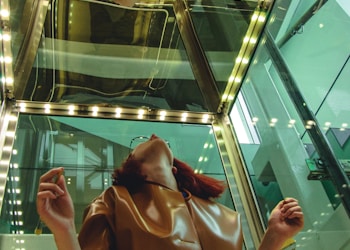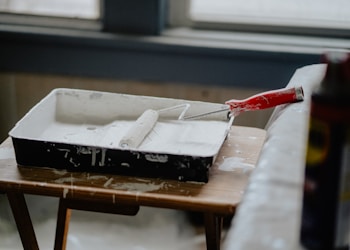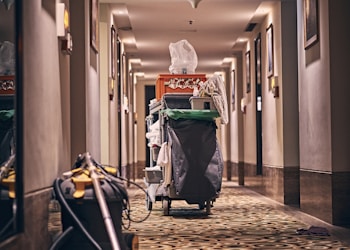Americans aren’t unfamiliar with switching dwellings and acquiring better residences. Statistics revealed this year that some 9.8% of citizens move annually. Moreover, studies from 2007 show that an average American homeowner switches homes 11+ times in their lifetime. Moving isn’t a blissful episode for most people. Instead, we learn that homeowners consider relocation to be more stressful than divorces or breakups. That’s why they often rent self-storage units to decrease their burden and transport fewer belongings to another residence. So, what stuff are you permitted to keep in a storage facility? Are there things people aren’t allowed to keep there? Let’s find out about things you should/shouldn’t store.
Things you can/can’t store in rented spaces
Relocating homeowners aren’t the only guys renting storage facilities! Some people declutter the house and can’t endure throwing away memorabilia. So, these things with which homeowners have emotional connections go inside these storage solutions. No wonder 1 in 11 American households had rented such units in 2005 for storing their “useless valuables.” Whether you’re frequently traveling or attempting to downsize, these temporary storerooms come in handy for different situations. But there’s a catch!
People often misuse these storage facilities by keeping things forbidden for safekeeping in these rented units. First of all, it’s crucial to rent storage units that are temperature-controlled and well-protected by the service providers. These rented spaces come in many sizes and allow homeowners to get some extra space at home. But some tenants store stuff that isn’t safe for storage inside these locations. Here, we’ll explain which objects aren’t meant to be hoarded in storage facilities just for the sake of your stuff’s safety:
- Furs
It isn’t wrong to keep furs inside storage containers. Ensure that they’re climate-controlled and regulate the internal temperature. That’s why you must inquire in advance whether the owners let tenants place furs inside their facilities. Some storage companies keep furs on the list of things you can’t keep there. If the temperature doesn’t exceed 55°F, then your furs will remain protected.
- Cash
We love that scene from Breaking Bad where Walter White kept his wealth concealed inside a storage facility. In real life, you shouldn’t stash your money away in these self-storage units. Banks are the right places for depositing your currency. Banks are more secure options when we’re talking about monetary safekeeping. So, don’t risk your wealth by putting your cash inside these spaces.
- Weed
You can theoretically store marijuana in storage containers. Still, most storage facilities forbid tenants from keeping cannabis to avoid legal issues. Recently, authorities seized weed worth $2 million from a Florida storage facility. Even though some states have legalized the consumption of marijuana, it’s still smarter to keep your drugs at home. You don’t want to ruin the unit’s climate with the smell!
- Tires
It often seems unbelievable, but some storage companies dislike tenants placing tires inside storage containers. Why do they hate tires? Well, tires can catch fire. Once they start burning, it’s difficult to put out the fire. Also, handling spare tires isn’t convenient either! That’s why tires are also on the list of items storage companies forbid keeping there. So, ask the owner before you start stashing stuff.
- Food
Don’t confuse these storerooms with external pantries where you may keep your edibles. Perishable items shouldn’t be stored even in climate-controlled facilities because they can attract rodents and insects, thereby ruining your valuables. Also, expired edibles will create conditions favorable for the growth of bacteria inside these units. That’s why it’s explicitly forbidden to keep your food there.
- Plants
There’s a simple reason behind storage facilities being the wrong place to keep your plants. A plant needs air, water, and sunlight to grow- things that aren’t constantly available in the storage container. However, you’ll find some content online about how to keep your plants fresh and alive in these units. But we strongly recommend respecting these flowers and giving them light.
- Animals
Storage containers aren’t designed as living quarters for people/animals. So, it would be best not to keep any animals – dead/alive – inside these facilities. Using these units as kennels for your animal friends can make you guilty of abuse! If you can’t take care of your pets, it’s better to make proper living arrangements. Don’t leave them to waste inside these forlorn containers.
- Weapons
Most storage facilities forbid tenants from keeping firearms and ammunition inside these units. You shouldn’t place weapons there to avoid becoming a terror suspect. Storing weapons inside units will force authorities to consider you a potential criminal. It may also be suspected that you’ve amassed these firearms illegally to evade detection. So, ensure that your guns/pistols are kept at home.
- Yourself
You’ve probably heard about people who were caught hiding in storage facilities. So, if you attempt to utilize these containers for a sleepover, it doesn’t sound like a good idea! They have cameras that watch over people’s valuables. Attempting to reside in these units will be detected. And you can’t use these storage spaces as your workplace either. Keeping yourself in a container isn’t permitted.
- Wet Things
Placing drenched objects may cause mold/mildew to grow inside these containers. So, don’t keep a wet item in storage facilities without drying it properly. You don’t want to spoil your stuff by putting something mildew-inspired there! However, there’s nothing wrong with placing objects used in the water. So, you can always store rafts, canoes, and kayaks there only after drying them effectively.
- Shady vehicles
There’s nothing wrong with storing your vehicles inside storage containers. But these vehicles must be insured, registered, and operable when stored. Owners will ask you to show your driver’s license and evidence of vehicle registration. From cars and RVs to boats and trucks – these vehicles remain secure in storage facilities. But placing shady vehicles can get tenants in trouble with authorities.
- Flammable Items
Anything that may catch fire shouldn’t be stored in these units. So, fireworks and explosives aren’t allowed for storage in a facility. Similarly, domestic cleaners aren’t safe along with gasoline/propane for storage either. If these things somehow explode, the tenant shall be held responsible for every damage tolerated by neighbors. That’s why it’s also a felony to keep some of these things there.
- Priceless Objects
Storage facilities aren’t 100% protected from theft, arson, or accidents. So, irreplaceable belongings shouldn’t be stored inside these units. For instance, your jewelry isn’t something you should keep in a storage container. That’s why we recommend keeping your priceless heirlooms, documents, and antique furniture home. Even if storage facilities offer insurance, it’s better to keep them safer.
Things you may keep
You probably think all items are off-limit inside storage containers. While some items become permissible if storage facilities are climate-controlled, there are several objects you can keep inside these units. So, we’ll explain here some things you may easily place inside storage containers:
- Wine
- Books
- Clothes
- Vehicles
- Furniture
- Electronics
- Mattresses
- Photographs
- Sports equipment
- Musical instruments
Conclusion
How many storage facilities are there in the United States? It’s estimated that our country homes more than 47,000 rented spaces where both individuals and organizations store their stuff. But homeowners have attempted to keep certain things in storage facilities that are outright forbidden! So, you can’t put stolen money or animal carcasses inside rented spaces. These units aren’t living areas for the homeless. On the other hand, there’s nothing wrong with placing your books, tables, ovens, paintings, mattresses, furniture, electronics, or decorative objects inside storage containers. But putting food, money, animals, firearms, or hazardous materials isn’t allowed not just for your safety but to protect neighbors too!
















